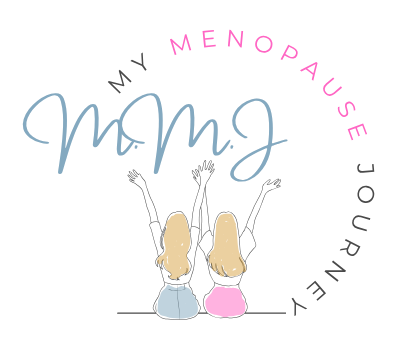Feel Better in Menopause with Daily Gratitude
Gratitude—it’s a buzzword we hear all the time, but does it really work during menopause? Spoiler alert: yes, it does. Shifting your focus from the endless list of menopause symptoms to the things you’re grateful for can have a massive impact on your mood and mindset. In this article, we’ll explore how gratitude practices can help you navigate the ups and downs of menopause and how to actually make it work for you (no rose-coloured glasses required).
Why Gratitude Matters
Menopause can sometimes feel like you’re walking through a storm of symptoms—hot flashes, mood swings, and restless nights. It’s easy to feel like you’re stuck in a whirlwind, just trying to survive each day. But here’s the thing: gratitude helps shift your focus from what’s going wrong to what’s going right. It doesn’t mean ignoring the challenges, but it allows you to find light even on your toughest days.
When you’re knee-deep in hot flashes, fatigue, or even the mental fog that can come with menopause, the idea of being thankful might feel far-fetched. Yet, research shows that practicing gratitude has profound effects on your emotional well-being. According to the Australian Psychological Society, regularly practising gratitude is linked to improved mental health, better sleep, and a greater sense of life satisfaction. Sounds like a win, right?
By consciously focusing on the good—even the tiniest moments—you’ll start to notice a shift in your outlook. You might not be able to change the fact that your body is going through some major transitions, but gratitude can help you cope with it more effectively.
Personally, I’ve found journaling to be a game-changer. Some days, it’s hard to come up with more than one thing I’m grateful for—especially when my body’s doing its menopausal thing. But even when I write something as simple as “I’m grateful for the sunshine today,” it instantly lifts my mood. The act of slowing down to think about what’s good, even on a hard day, can help shift your emotional state. Plus, you can look back on your gratitude entries when you’re having a rough day to remind yourself of all the good things you have.
Simple Gratitude Practices
To help you get started, here are some simple gratitude practices you can weave into your daily life. They’re easy to implement and can work wonders for shifting your mindset.

Gratitude Journaling
If journaling has already become your BFF, why not dedicate a section of your journal to daily gratitude? Write down at least three things you're grateful for each day. The best part? They don’t need to be monumental things. It can be as simple as “I didn’t lose my phone today” or “That cup of tea I had was bliss.”

Gratitude Meditation
Meditation might sound intimidating, but don’t worry, it doesn’t need to be about sitting in silence for hours. You can practice a simple gratitude meditation in just a few minutes. Take a seat, close your eyes, and focus on what’s going right in your life. Picture the people in your life who support you, the small joys that bring you peace, or even your favourite moments of the day.

Gratitude Jar
Start a gratitude jar by writing something you're thankful for each day—big or small—and adding it to the jar. It could be a kind word, a peaceful walk, or a quiet moment. At the end of the month, read a few notes aloud to reflect on the good and remind yourself that even on hard days, there's still plenty to be grateful for.
I remember when I first started practicing gratitude during menopause, and I’ll admit, it felt a bit forced. My menopause brain was all over the place, and I couldn’t focus on much. But one day, I found myself grateful for the smallest thing: a perfect, warm cup of coffee. It was a simple moment, but in that moment, I felt a little less overwhelmed. Turns out, that small act of gratitude was the start of a shift in my mindset.
Gratitude isn’t about pretending everything is perfect; it’s about appreciating what’s good, no matter how small. It’s about acknowledging the difficult moments, but also recognising that there are still positives to be found, even in the midst of it all.
By incorporating gratitude practices into your routine, you’ll find that your mindset shifts, your stress lowers, and your ability to handle menopause symptoms increases. You’re not sweeping your symptoms under the rug—you’re simply giving yourself the space to acknowledge the positive aspects of your life alongside the challenges. And believe me, every bit helps.
Gratitude isn’t just a feel-good habit—it’s a practical, scientifically-backed tool that can help you thrive during menopause. So, whether you’re in the midst of a hot flash, dealing with mood swings, or just trying to navigate the chaos of life, remember that gratitude can be your anchor.
